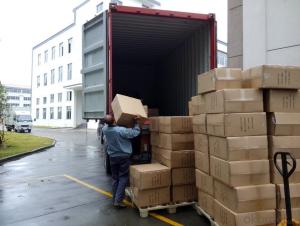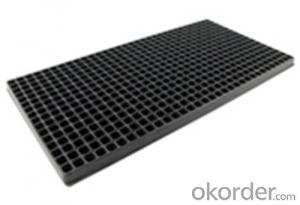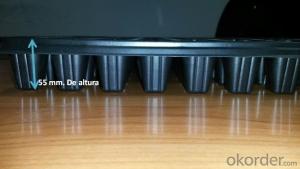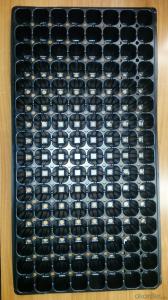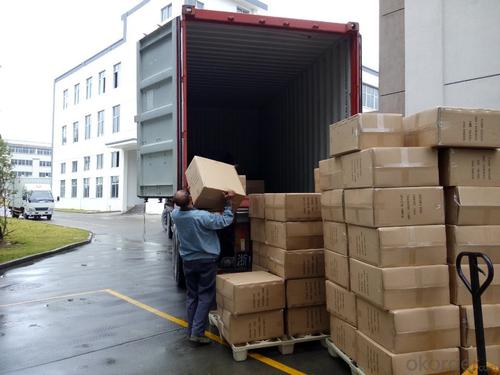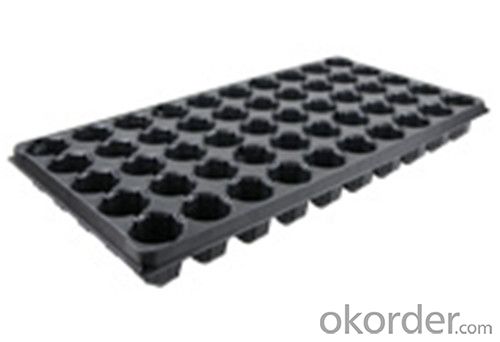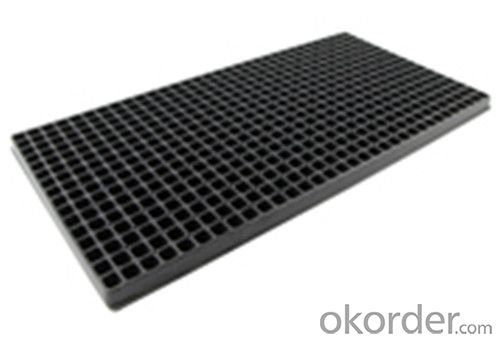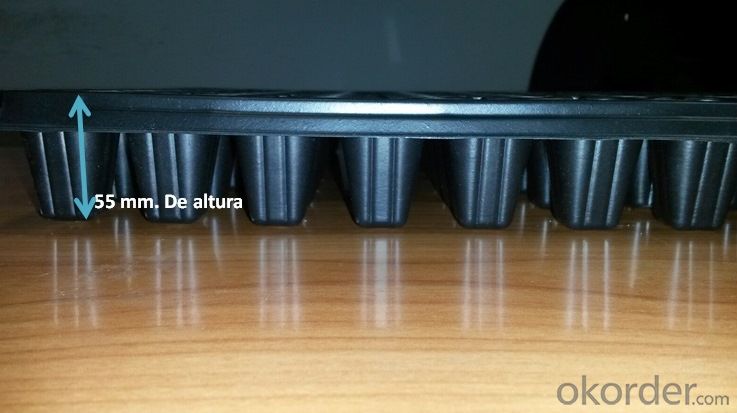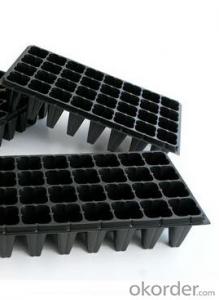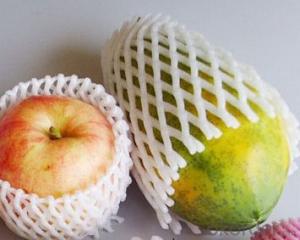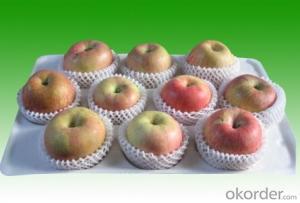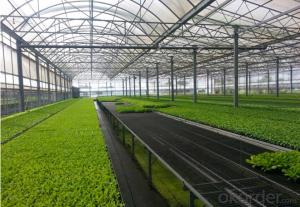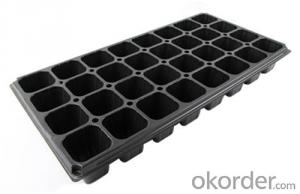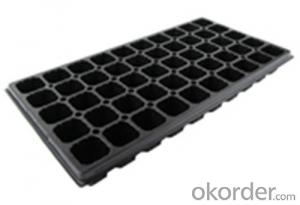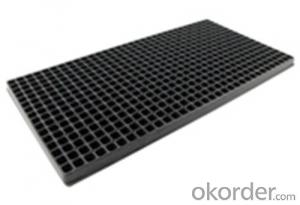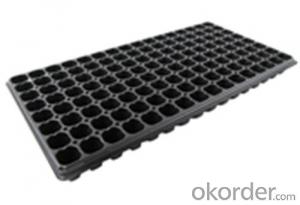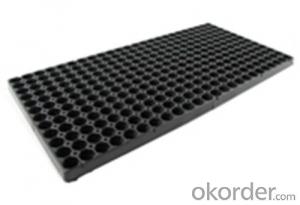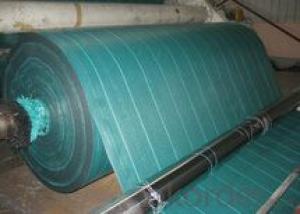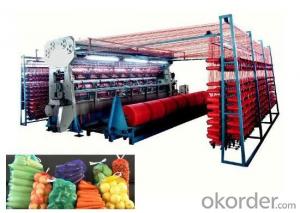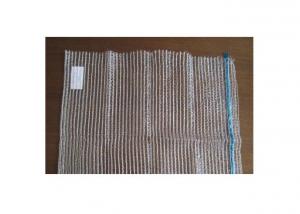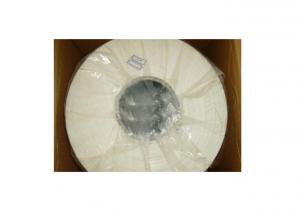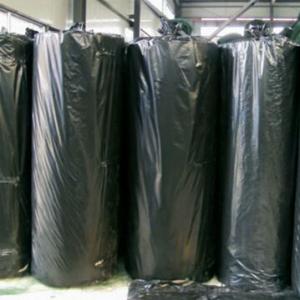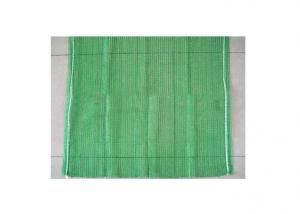Square Nursery Seeding Tray HIPS Seed Tray Plastic Tray
- Loading Port:
- China main port
- Payment Terms:
- TT OR LC
- Min Order Qty:
- 1000 pc
- Supply Capability:
- 10000000 pc/month
OKorder Service Pledge
OKorder Financial Service
You Might Also Like
Structure of the seed tray:
· Top quality and competitive price.
· Variety design and good appearance.
· Easy to use, and remove.
· Durable and reusable.
· Eco-Friendly.
Advantages:
· Top quality and competitive price.
· Variety design and good appearance.
· Easy to use, and remove.
· Durable and reusable.
· Eco-Friendly.
Application:
· Ideal for Starting seeds and Transplanting Seedling.
· Suitable for both manual and automatic planting.
· Suitable for Propagating Vegetables, Flowers and other plant from seed · in green-house or indoors.
Description Main Features of the seed tray:
· Ideal for Starting seeds and Transplanting Seedling.
· Suitable for both manual and automatic planting.
· Suitable for Propagating Vegetables, Flowers and other plant from seed in green-house or indoors.
Using time:
· thickness of 0.5mm can be used 1 to 2 times.
· thickness of 0.6mm can be used 3 to 4 times.
· thickness of 0.7mm can be used 5 to 6 times.
· thickness of 0.8mm can be used 7 to 8 times.
· thickness of 0.9mm can be used 8 to 9 times.
· thickness of 1.0mm can be used 8 to 10 times.
Thickness vs. Weight:
· Thickness of trays are from 0.5mm to 1.0mm.
· 1.0mm: 155g±5g; 100pcs/ctn.
· 0.9mm: 140g±5g; 120pcs/ctn.
· 0.7mm: 110g±5g; 150pcs/ctn.
· 0.6mm: 95g±5g; 180pcs/ctn.
· 0.5mm: 80g±5g; 200pcs/ctn.
Seed Tray Specification:
Material | ps/pvc |
Thickness | 0.5mm-1.5mm, standard:1mm |
Weight | 80g(±5)g-230g(±5)g, Standard weight:155g(±5)g |
Size | length:490mm-540mm, width:190mm-345mm,depth:25mm-150mm Standard:54mmX28mm |
Cell count | 18-512 |
Package | in carton |
Using time | 8-10 times |
FAQ:
Q:How Can I Get A Sample?
A:You can get samples by communicate with our export sales.
Q:How Long Is Delivery?
A:Delivery time will be 7-25 days according to order quantity.
Q:What Is The MOQ?
A:Our MOQ is 1*20FT container quantity, allow to mix several items.
Q:What Is Our Normal Payments Terms?
A:Our normal payment terms now is T/T, L/C or Western Union,Papal.
Q:How Do I Order Your Products?
A:You can check our website for any items you interest and you can also get communication with our export sales and order for it accordingly.
Q:What Kinds Of Material We Use In Our Product?
A:Our plastic flower pots use material such as PP polymer or PE polymer.
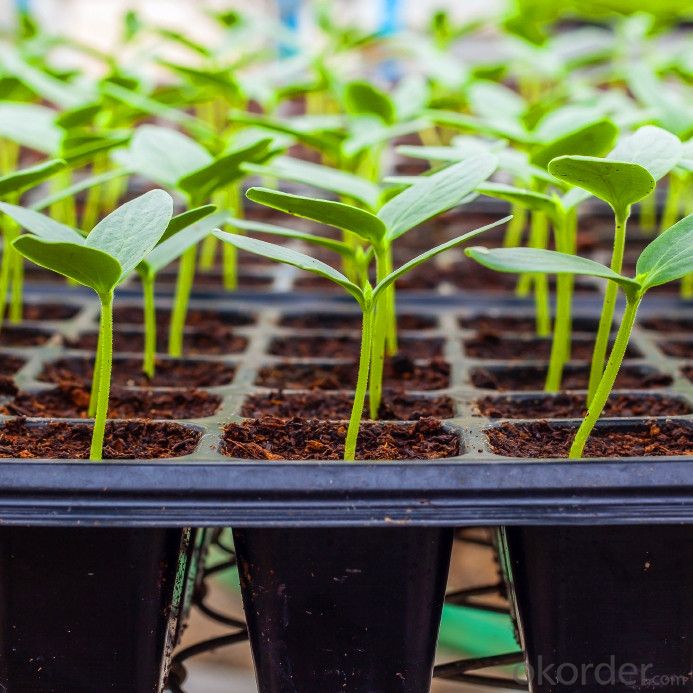
- Q: What size should I start with and once heal what should I change it too? Stainless Steel is the best metal right? and as for plastic can the whole bar be plastic or metal as the bar and plastic for the balls? What types of plastic?
- i have my tongue pierced and i always wear steel but u can wear a plastic one after its fully healed. the only reason i wear steel all the time is cuz plastic iritates my tongue for some reason.lol. but u can get all colors and even get them with sets in them. u will find what is comfortable just try a bunch of different ones and see what u like. they arent very expensive. u can change it all the time after its healed just dont take it out for long cuz it will close up. tongues heal really fast.
- Q: Can ground cover be used to attract pollinators and beneficial insects?
- Yes, ground cover can be used to attract pollinators and beneficial insects. Ground cover plants such as clover, thyme, or violets can provide nectar and pollen sources for bees, butterflies, and other beneficial insects. These plants also offer shelter and nesting sites for these pollinators, enhancing their overall habitat and promoting their population.
- Q: What are the best ground cover plants for shady areas?
- Some of the best ground cover plants for shady areas include periwinkle, hostas, ferns, creeping myrtle, and pachysandra. These plants are well-suited to low light conditions and provide a lush and attractive ground cover while suppressing weed growth.
- Q: what are plastics used for?
- Plastic objects can be mass-produced and are usually less expensive than other materials such as metals. Plastics consist of linkages of relatively long chains of molecules and often remain flexible. Plastics can be used as thin films for coatings or wraps. Plastics can resist heat and cold within useful limits and may be used to package foods although that may require special plastics that will not leech out harmful substances. Plastics can be used to fabricate credit cards (nicknamed 'plastic' money).
- Q: What are some ground cover options for a Japanese garden?
- Some ground cover options for a Japanese garden include moss, ferns, creeping thyme, ajuga, mondo grass, and hakone grass.
- Q: Are nursery trays suitable for hanging plants?
- No, nursery trays are not suitable for hanging plants as they are designed for a different purpose. Hanging plants require specialized containers with proper drainage and support for their growth.
- Q: How do agricultural plastic products help with microclimate management?
- Agricultural plastic products help with microclimate management by providing a controlled environment for crops. These products, such as greenhouses or mulch films, create a barrier that regulates temperature, humidity, and light exposure. This allows farmers to extend growing seasons, protect crops from extreme weather conditions, and optimize conditions for better plant growth. Additionally, agricultural plastics can reduce water evaporation, prevent weed growth, and improve soil moisture retention, further enhancing microclimate management in agriculture.
- Q: How are plastic honeycomb panels used for hive ventilation?
- Plastic honeycomb panels are used for hive ventilation by being installed at the entrance or on the sides of the hive. These panels have a hexagonal cell structure that allows air to flow freely while preventing the entry of larger pests or predators. The honeycomb design also helps in regulating temperature and humidity inside the hive, ensuring a comfortable and well-ventilated environment for the bees.
- Q: Can ground cover plants be used to reduce water runoff in a garden?
- Yes, ground cover plants can be used to reduce water runoff in a garden. Ground cover plants, with their dense foliage and extensive root systems, help to absorb and slow down rainwater, allowing it to infiltrate into the soil instead of quickly running off the surface. This reduces erosion, helps retain moisture in the soil, and prevents water from collecting in unwanted areas. Additionally, ground covers can also help filter and purify water as it percolates through their root zones, improving water quality in the garden.
- Q: Do nursery trays have dividers?
- Yes, nursery trays often have dividers to separate and organize different plants or seedlings.
Send your message to us
Square Nursery Seeding Tray HIPS Seed Tray Plastic Tray
- Loading Port:
- China main port
- Payment Terms:
- TT OR LC
- Min Order Qty:
- 1000 pc
- Supply Capability:
- 10000000 pc/month
OKorder Service Pledge
OKorder Financial Service
Similar products
Hot products
Hot Searches
Related keywords
